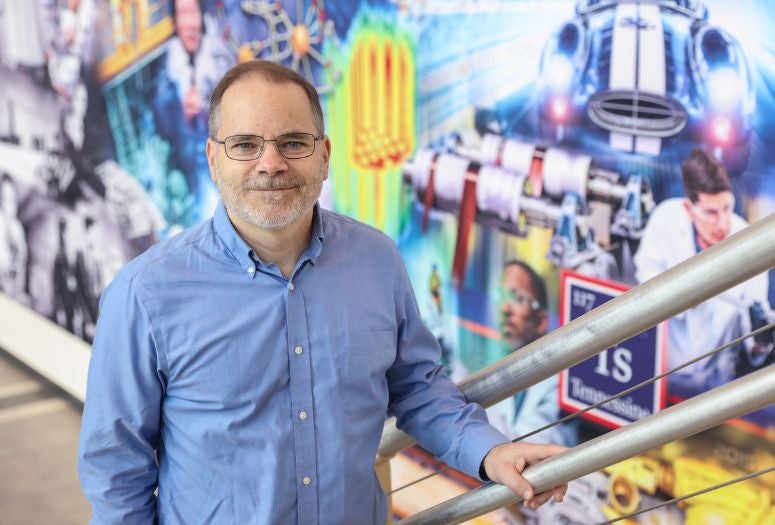Rice University has named David Sholl, an internationally recognized expert in research strategy, clean energy and scientific leadership, as its new executive vice president for research.
Currently the executive director and vice provost of the University of Tennessee-Oak Ridge Innovation Institute, Sholl will join Rice in January. He brings decades of experience in academia, national laboratories and the federal government.

As Rice’s chief research officer, Sholl will oversee the university’s internal and external research enterprise and set its direction in alignment with the university’s new strategic plan, Momentous. He will serve on the president’s cabinet and work closely with university leadership, faculty and staff to grow Rice’s research funding, infrastructure and impact.
“David Sholl is a visionary, focused leader whose experience and energy will be a tremendous asset as Rice elevates its research ambitions,” Rice President Reginald DesRoches said. “He is ideally suited to guide our faculty and research community in realizing our bold goals — advancing discoveries in health, sustainable futures, thriving urban communities and responsible AI. His leadership will be key as we grow our partnerships and expand Rice’s national and global impact.”
A member of the National Academy of Engineering, Sholl has a distinguished record of leadership, including directing the Transformational Decarbonization Initiative at Oak Ridge National Laboratory and advising the U.S. Department of Energy’s Office of Clean Energy Demonstrations.
“I’m thrilled to join Rice at such a pivotal moment,” Sholl said. “The university’s new strategic plan is both pragmatic and bold — it positions Rice to make a profound difference regionally, nationally and globally. I look forward to collaborating with the faculty and leadership team to build on Rice’s momentum and take its research enterprise to the next level.”
From 2013 to 2021, Sholl served as chair of the School of Chemical and Biomolecular Engineering at the Georgia Institute of Technology. He is editor-in-chief of the AIChE Journal, a fellow of the American Institute of Chemical Engineers and the American Association for the Advancement of Science.
Sholl’s research has primarily focused on using materials modeling methods to develop new materials and processes for chemical separations and energy applications. He has published more than 400 peer-reviewed articles and has written several books, including “Density Functional Theory: A Practical Introduction” and “Success and Creativity in Scientific Research.”
After earning his undergraduate degree in theoretical physics from the Australian National University, Sholl received his master’s and doctorate in applied mathematics from the University of Colorado Boulder.
Rice faculty conduct world-class research across a range of disciplines and have significantly increased sponsored research funding in recent years, bringing in $218 million in fiscal year 2024. A key goal for the new executive vice president for research will be to further expand the university’s research partnerships with federal agencies, foundations and industry and to grow its reputation for excellence across all fields, including health, sustainability, urban development and AI.
Sholl will oversee the Office of Research, which includes the Office of Innovation, Office of Technology Transfer, Office of Sponsored Projects, Office of Research Integrity, the Animal Resources Facility and the Office of Research Security.
Christopher Johns-Krull, professor of physics and astronomy, will continue serving as interim executive vice president for research until Sholl assumes the role in the new year.
Rice’s research priorities, as outlined in its strategic plan, emphasize foundational, applied, creative and humanistic research with the power to lead discovery, deepen understanding and drive life-changing advances. The university’s faculty boasts more than 24 members of the National Academy of Sciences, National Academy of Engineering and National Academy of Medicine, along with numerous American Academy of Arts and Sciences members and two past Nobel laureates.

